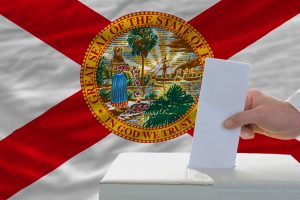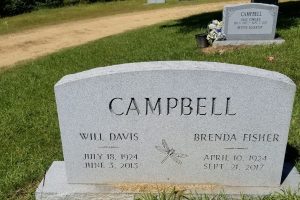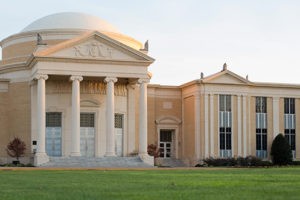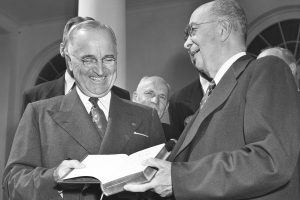 Founded in 1834, Wake Forest University is preparing to release an online text from its “Slavery, Race and Memory Project” providing documentation and analysis of the school’s slavery-related origins. I contributed a chapter entitled “Defending the Indefensible: Wake Forest, Baptists, and the Bible,” briefly sketching the way white Baptists in the South defended chattel slavery, not simply as culture practice, but as biblical mandate.
Founded in 1834, Wake Forest University is preparing to release an online text from its “Slavery, Race and Memory Project” providing documentation and analysis of the school’s slavery-related origins. I contributed a chapter entitled “Defending the Indefensible: Wake Forest, Baptists, and the Bible,” briefly sketching the way white Baptists in the South defended chattel slavery, not simply as culture practice, but as biblical mandate.
The essay begins with this passage from Richard Furman’s 1822 “Exposition,” imploring South Carolina’s governor to declare a day of prayer and thanksgiving that the slave rebellion allegedly planned by ex-slave Denmark Vesey had been thwarted. As pastor of Charleston’s First Baptist Church, Furman set forth an early “Biblical defense” of slavery, asserting:
“Had the holding of slaves been a moral evil, it cannot be supposed, that the inspired Apostles, who feared not the faces of men, and were ready to lay down their lives in the cause of their God, would have tolerated it, for a moment, in the Christian Church … surely, where both master and servant were Christian … they would have enforced the law of Christ, and required, that the master should liberate his slave in the first instance.”
“But, instead of this, they let the relationship remain untouched, as being lawful and right, and insist on the relative duties. In proving this subject justifiable by Scriptural authority, its morality is also proved; for the Divine Law never sanctions immoral actions” (emphasis mine).
“This discussion of slavery, race and biblical authority is no mere academic or theological exercise.”
Ironically, as I was revisiting Furman’s “defense of the indefensible,” a parallel document linking biblical authority and slave submission went public, with contemporary hermeneutical (interpretive) implications. It began with a tweet posting a portion of a 1998 interview with Albert Mohler, then in his early years as president of Southern Baptist Theological Seminary in Louisville, Kentucky. The transcript came from CNN’s “Larry King Live” show and King’s conversation with Mohler and Patricia Ireland, president of the National Organization for Women.
Reflecting on Mohler’s interpretation of Scripture, King asked Mohler how he dealt with Paul’s admonition to slaves in the book of Ephesians, the same passage that admonishes wives to submit to the authority of their husbands.
Mohler: “I’m not scared of that passage. It’s the word of God which I believe is God’s Perfect Treasure of Truth in the text.”
King: “So God wanted slaves to comply with their masters?”
Mohler: “Well, that text illustrates that the Apostle Paul by the inspiration of the Holy Spirit said, ‘Slaves, if you want to model what a Christian looks like, you graciously submit [to your masters] and thereby gain moral authority.’”
Asked by King if he agreed with that view, Mohler stated, “Well, I have to agree with that. It’s the Word of God. That is not an endorsement of slavery as an institution.”
King: “So if a foreign power took over this country, are you saying that you would graciously submit to its leadership?”
Mohler: “The Bible tells us that we are graciously to submit to the leaders that He [God] puts in authority. Now, again, it’s a distortion to claim that the Bible endorses slavery. It does no such thing. But it does say that if you are a slave, there is a way to behave. And let me just point out that slavery in America did not end by a revolt by slaves but by the moral authority that slaves gained as America came to see slavery as a condemned sin.”
King: “You don’t condemn those slaves who ran away from the masters, do you?”
Ireland: “What about the slave Harriet Tubman who ran away and formed the Underground Railroad as an escape route for runaway slaves?”
Mohler: “Well, I want to look at this text seriously and it says, ‘Submit to the master.’”
King: “So those slaves who ran away from their masters were nuts?”
Mohler: “I really don’t see any loophole there [slaves refusing submission to masters] as much as popular culture might otherwise want to see one.”
Twenty-two years later, Mohler’s remarks resurfaced, prompting an interview about them with journalist Jonathan Merritt published last month by Religion News Service. To his credit, Mohler repudiated his earlier assertions. “It sounds like an incredibly stupid comment, and it was,” he told Merritt. “I fell into a trap I should have avoided, and I don’t stand by those comments. I repudiate the statements I made.”
Mohler may also be credited with initiating a study of Southern Seminary’s own slavery-related origins (1859), released in a 2018 document entitled “Report on Slavery and Racism in the History of the Southern Baptist Theological Seminary.”
“Mohler has repudiated his 1998 ‘biblical defense’ of slave submission, but apparently retained the method of biblical interpretation that took him there.”
In his introductory letter to the document, Mohler acknowledged that, “The founding faculty of this school – all four of them – were deeply involved in slavery and deeply complicit in the defense of slavery. Many of their successors on this faculty, throughout the period of Reconstruction and well into the twentieth century, advocated segregation, the inferiority of African-Americans, and openly embraced the ideology of the Lost Cause of southern slavery.”
He also pointed out that in 1995 he was a member of a “working group” that brought a recommendation approved at the annual meeting of the Southern Baptist Convention, which confessed that “many of our Southern Baptist forbears defended the right to own slaves, and either participated in, supported, or acquiesced in the particularly inhumane nature of American slavery; and in later years Southern Baptists failed, in many cases, to support, and in some cases opposed, legitimate initiatives to secure the civil rights of African-Americans.”
The convention apologized “to all African-Americans … for condoning and/or perpetuating individual and systemic racism in our lifetime.”
Yet three years after helping draft the denomination’s statement of repentance over slavery, Mohler’s hermeneutic of biblical inerrancy, “God’s Perfect Treasure of Truth in the text,” led him to reaffirm a biblical mandate for slaves to dutifully “submit” to their masters in whatever era or culture slavery might exist. As a prominent Baptist theologian and arbiter of orthodoxy and ethics, Mohler’s repentance regarding slavery is important, albeit delayed.
It’s a lesson for all of us who read, teach, study and preach the Bible, while attempting to live according to its truths. The Bible may be “God’s Perfect Treasure of Truth,” but not one of us is a perfect interpreter of that truth. Truth is, the history of Christianity is replete with examples of those who, claiming to be absolutely right about the Bible, turned out to be terribly wrong about the gospel. Those who insist that biblical inerrancy is the only way to avoid the “slippery slope” of heresy had best reread Richard Furman’s “Exposition” and its “biblical” support for the slippery slope of slavery.
In 2020 in the land of the free and the home of interminable racism, this discussion of slavery, race and biblical authority is no mere academic or theological exercise. It is a legacy not unrelated to the perpetual racism that now shatters and divides American society after recent law-enforcement-related murders of African Americans in Georgia, Kentucky and Minnesota. Perhaps we “cannot repent for our forebears,” as many conservative white Christians argue, but we can repent from them, rejecting their biblical hermeneutic, and refusing to honor them in our books, our buildings and our racial attitudes and actions.
“History is replete with examples of those who, claiming to be absolutely right about the Bible, turned out to be terribly wrong about the gospel.”
It is a continuous struggle. In 2020, Albert Mohler has repudiated his 1998 “biblical defense” of slave submission, but apparently retained the method of biblical interpretation that took him there. Just last year Mohler reaffirmed his “biblical” opposition to women in pulpit and pastorate, noting, “I think there’s just something about the order of creation that means that God intends for the preaching voice to be a male voice.”
Sadly, that hermeneutic sounds strangely parallel to Richard Furman’s. Same song, second verse?






































































